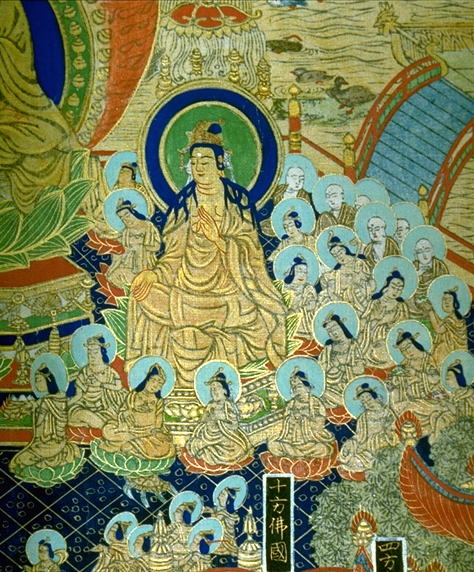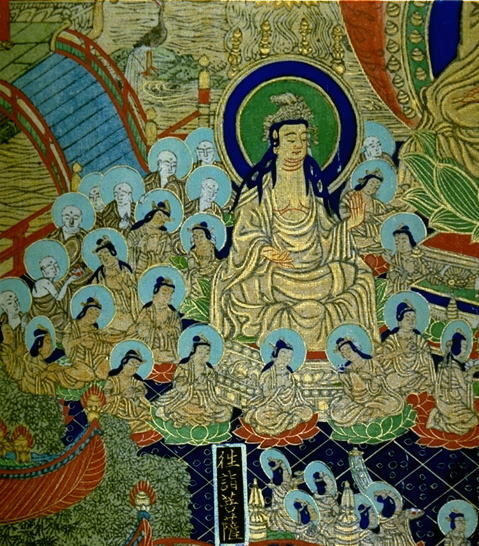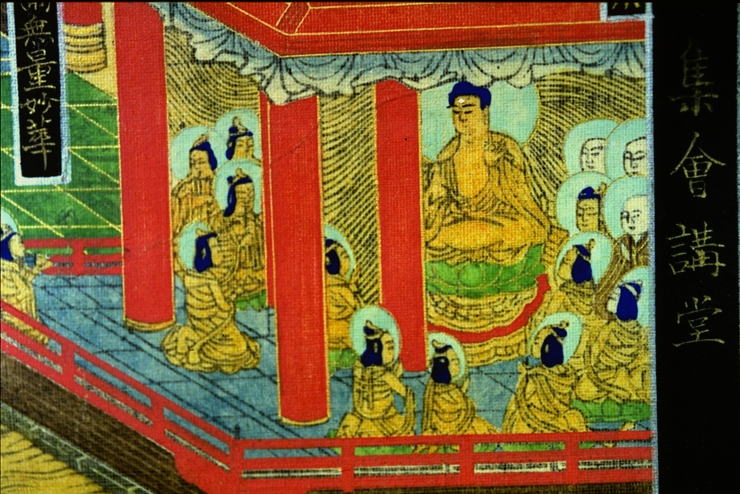
Avalokiteshvara Bodhisattva
Illustrated
(28-30)
Illustrations from the Larger Sutra Mandala
 Avalokiteshvara Bodhisattva |
| Bodhisattvas in the Pure Land |
 Mahasthamaprapta Bodhisattva |
| Amida's preaching and exquisite sounds produced by the trees, etc. |
 Amida preaching the Dharma. |
| Bodhisattvas' virtues |
Go to Next File; return to Sukhavati-Index; Index